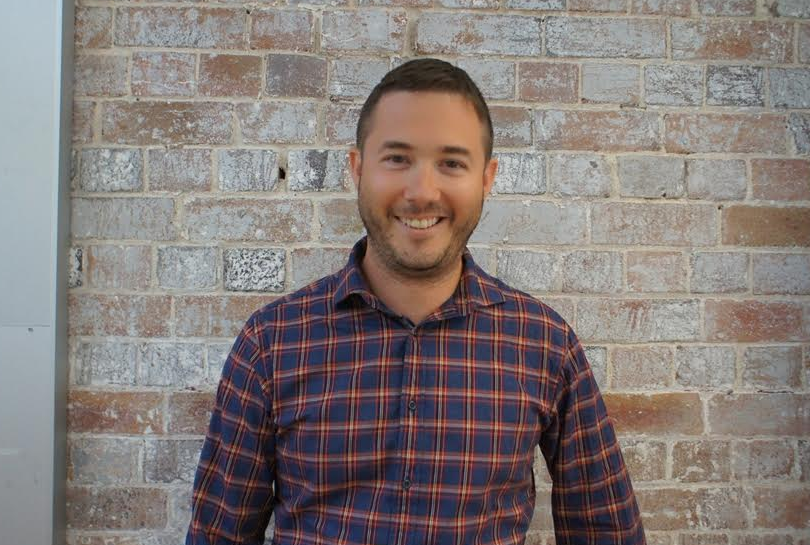What will the agency of the future look like?
With the advertising industry changing at a rapid rate and the rise of new technologies and advertising tools, change is inevitable. Senior agency executives share their thoughts on what the agency of the future might look like.
Henry Innes, management consultant and strategy director, says:
“I always think of agencies as brands for collective talent. That’s what drives our business (talent), but if you think of it as an access problem, and we use brands to solve that/match talent to clients, then I suspect it’s a problem software can eat.
“So I suspect the agency of the future operates more like a market network, matching people to jobs based on history, performance, job type, opportunity — rather than simply brands for collective talent. Our current model in that context feels outdated and dumb.
“It’s also why I’m a fan of what Publicis is trying to do with Marcel (as I think they’re trying to get to that). Media I think of separately. There’s a great analogy to media — which is equities trading.
“Equities used to be traded via paper and sleazy salesmen. Today, that’s no longer the case. Software does a lot of the execution whilst people set the strategy. Along the way though, we had high frequency trading come along first before getting to the longer-term model.
“Feels analogous to media/programmatic. I suspect most media buying will be machine done in the future, likely smart quant algorithms, augmented by smart data and media people at the top. But that business is probably a lot smaller, yet higher margin. E.g some media agencies might halve their revenue but triple their margin. Food for thought. Both are just executions of how to develop agencies using software to make them smarter and execute with people better.”
Simon McCrudden, head of planning at JWT Melbourne, says:
“The depressing way to answer this is: ‘What? There will still be agencies in the future? But isn’t advertising going the same way as journalism?’ But let’s not go down that path.
“In truth, there is no one answer to this question. In much the same way as there are multiple different agency offers and models today, the same will hold true in the future, as different clients have different needs. And it depends on how far into the future we want to look.
“Short of saying that all advertising will be produced by a machine in the corner of a client’s office, I think good agencies of the future will be like good agencies are today.
“The agency of the future, like today, will need to be the source of consumer and cultural knowledge, and provide the objective no bullshit point of view that can help clients. As with any age, agencies in the future will need to stay on top of all the channel opportunities that exist, and understand how to best leverage them to make impactful creative work.
“I think the successful agencies of the future will be those that can prove to clients the value of creativity and advertising, rather than trying to move away from it. They will be nimble and adaptable rather than being tied to a process or particular model that doesn’t allow them to react to changing situations. And they will be open, collaborative environments that encourage and enable staff and clients to learn new ways of doing things.”
Lucielle Vardy, head of planning at Naked Communications, says:
“We can’t predict a future based on the paradigms that exist now, and so whilst I don’t know what the agency of the future looks like or if it’ll even be called that, I know that if as creative partners we’re equipped with the right talent to navigate change, particularly digital disruption, if we’re useful, honest and human-focused (imagine that), we won’t go out of fashion for a very long time.
“The agency of the future, whether specialist or generalist, will need to continue to attract the strongest creative talent and the most imaginative minds. With brands becoming more purposeful and social issues more widely understood, the industry will hopefully be leaned upon to come up with and make ideas for a better world.”
Chris Mitchell, ECD and partner at Daylight Agency, says:

Micthell says: ‘advances in new technology will make building and maintaining a brand extremely difficult’
“Being optimistic, I think the agencies of the future will have broken loose from the creatively stifling ‘master/servant’ mentality and be a place where the currency of their own ideas gives them more skin in the game.
“Clients make stuff. But agencies make brands. So I see agencies becoming more entrepreneurial and entering into more collaborative joint venture relationships with clients so they are adequately rewarded for their efforts.
“In the immediate future i.e. next ten years, I think media companies will invest in agencies again because they will need help to drive growth and relevance. Data is hindsight not foresight, so I’d say clients that concentrate only on appealing to younger audiences will now realise they have been missing out on reaching roughly 50% of their audience who have more disposable cash and are more inclined to splash it around.
“Looking fifty years further ahead from my office on the moon, I will say that advances in new technology will make building and maintaining a brand extremely difficult. Us Earthlings will have more important things to consider, like where to put people arriving illegally on the moon by spaceships. Our Earthling choices will be limited to products that have now been commoditised into usage only categories.
“I think there will be a broad reach media agency that is much like a hybrid of Facebook, YouTube and Netflix – it will own the media platform and it will corner the market by paying people, via their chip implants, to watch brand advertising. The better the brand ads the more viewers. It’s a win win. So the agency of the future will need to be more experimental to make brands matter. The uniqueness of their ideas will be what draws business to them. So in a sense, everything changes and yet nothing changes.”
Michael Daley, director of analytics at Digitas, says:
“The agency of the future recognises how important it is to support clients in embracing a truly customer-centric approach to marketing, across all on- and offline platforms. There are four key elements to helping them better support clients:
1. Be an intrinsic part of every client’s ‘Go To Market’ strategy. Client service will be less about responding to briefs and more about proactively identifying ways to deliver value
2. Ensure agency expertise is deep in order to establish/maintain competitive advantage, and wide in order to drive smooth collaboration with business and other agency stakeholders
3. Seek opportunities to be measured on tangible business outcomes. Metrics such as click-through rates, Facebook likes and brochure downloads make it difficult to quantify the value provided
4. Unify tech, data and creative. When these three combine effectively, the outcome is outstanding customer interactions, grounded in a deep understanding of the customer journey
Lilian Sor, chief strategy officer at Clemenger BBDO Sydney, says:

Sor says: ‘Technology has not only disrupted the advertising model, it’s ushered in a new buying model’
“The agency of the future will grow and broaden their expertise of how we influence consumer choice. Technology has not only disrupted the advertising model, it’s ushered in a new buying model. When I was young, a brand could own the shelf (or department store, or street) and own the airwaves and win – so scale was key. Scale equaled trust and accessibility.
“But the rise of the internet, the power of social media channels to breed trust and influence, globalisation and the lowering of manufacturing costs, and the accessibility of products and services through newer and quicker delivery channels means that it’s not scale, but agility and the ability to meet consumer demands at speed that matters.
“The linear funnel of awareness, consideration, purchase is quickly collapsing. So looking forward, the emphasis on CX and predictive technologies will become table stakes. Every interaction that a person has with a brand makes up his or her perception and preference of it, not just the hit we get on the old airwaves and in store. That means every successful future agency will have a solid grasp on the newer disciplines of today of experience and service design underpinned by data, and also understand the importance of buying and creating the right type of communications for the right moment.
“However more than ever, the ability for creativity to help brands differentiate themselves from a crowded competitive set to return financial gains will be a brands most powerful asset. A brand will always say something about the person who choses it. Developing and nurturing the image a brand projects, the purpose it has in the world, and the problem it helps consumers solve will remain sacrosanct. Any brand who forgets this will become one of an ever-growing list of functional yet uninspiring names on a quickly scrolled through screen.”
Bim Ricketson, ECD at GPJ Australia, says:

Ricketson says: ‘Anyone in adland knows that meeting with someone in real life is the best way to get to know them – or sell to them’
“If we’re not careful, the agency of the future might end up looking like the cruise ship in WALL-E – we’re all on a permanent pleasure cruise far from Earth, where everything is available at the click of a button and there’s no need to ever get out of our swivel chairs.
“The agency of the future understands that getting the data on people is not the same as getting to know them, in real life. It’s the only way to build an emotional connection with people. You can speak at people, tell them things, count their clicks, but it could all fall on deaf ears if they aren’t emotionally connected; experiences are the best way to do this.
“Anyone in adland knows that meeting with someone in real life is the best way to get to know them – or sell to them. The opportunity to pitch in person trumps even the fanciest proposal document, because it gives your future client an idea of what you’re really like – your handshake, your best ‘spirit fingers’, your sweet new haircut.
“Our audiences are the same. They want personal moments of contact, they want to look their brands in the eye and smell their cologne. You don’t get that from a TVC and no click-through has ever made a genuine impression on a real human. They’re nice stories, metrics or data sets in a daily blizzard of touch points – important components to any campaign, but nothing like a meaningful experience.
“Future agencies know that it’s only once someone has experienced their brand IRL and something about it has chimed with them, that they’re truly on board.
“Ever watched a netball game on TV? You probably flipped right past it – fair enough. But have you ever been to a live game and experienced the music, the joy of the fans, the proximity to the players, the whole noisy rush of the spectacle? It’s epic. You’ll be a devoted evangelist of the netball brand, I guarantee. There’s simply no other channel that comes close to invoking this kind of brand conversion. Until I’d been, no amount of marketing could have convinced me I was going to love netball.
“Future agencies will be the ones who look at their campaign plan and find opportunities to descend from their orbiting pleasure cruisers and get amongst the people. They will harness the power of our ever-growing wealth of data – without forgetting that we are dealing with is people – and put people at the heart of everything they do.”
Laura McRae, senior planner at The Royals, says:
“It depends entirely on how far in the future you look. For decades, agencies have been evolving and modifying their business models, because that’s just the nature of our work. That being said, we all know in the near future we will experience another major paradigm shift. Agencies are picking up the pace, working at the speed of innovation, performing under unfathomable timelines and being paid less than ever before.
“So, change is coming. But what change? It would be egotistical to think anyone can really predict what will happen, but there are a few signs that may indicate where things are tracking.
“To somewhat predict the agency of the future, we need to understand how agencies will continue to charge their clients well for added value. The current model of an hourly rates isn’t sustainable and agencies will have to charge for the value they create (maybe even invest upfront): it’s not about how long something takes to make, it’s how effectively we solve the business challenge.
“With this in mind, I think the modern agency won’t be an advertising agency at all – it will be a business that solves all kinds of problems creatively. Automation via AI and machine learning will do much of the heavy lifting ‘advertising’ work, and agencies will have to provide big ideas that radically transform the fundamentals of a business. Whether that’s through architecture, wayfinding, product development, technology, experience design, and so on.
“Despite the perceived threat of becoming obsolete, we still truly believe there will always be a need for creative companies and the solutions they provide. It’s these creative solutions that enable businesses to make leaps and bounds in their respective industries, rather than small incremental wins.
“In the future, businesses might be able to survive without executional ad agencies (it’s going in-house anyway), but they will need customer-focused creative companies even more than they do now. They just haven’t realised it yet.”
Rebecca Carrasco, deputy executive creative director at Saatchi & Saatchi Australia, says:
“It depends what the audience of the future looks like. At the end of the day, the agency facilitates a connection between a brand and its audience, so as the audience’s location and behaviour changes, the way in which an agency is staffed and structured also changes to better accommodate new ways of connecting the brand with its audience.
“I say audience and not consumer, because I’ve never met an actual consumer; someone specifically designed to consume. I’ve only met real, discerning, sceptical, time-poor people, who generally aren’t looking to consume something branded when it lands in front of them. Quite the opposite actually. Which obviously makes the ‘connection’ piece very important. This is where an agency adds value. Generating branded information and putting it in front of people is one thing, but ensuring that people will want to connect with it is quite another.
“So, I think the agency model will continue to become a lot more fluid, pulling in different skill sets, as required, to facilitate new connections between brands and their changing audiences. And as the model becomes less fixed, the need to have a strong point of navigation becomes more important than ever. A fluid model needs to revolve around something which can help organise it and give it direction. And that something is an idea. Because ideas will always be the most effective way to connect audiences with brands.”








I hope agencies of the future have real opinions and not this cliche ridden drivel. Truly reads like a PowerPoint deck from a ‘strategy’ meeting.
Click bait Henry is back again
The Hern dog, back saying everything no one else wants to hear!
Lilian made lots of sense.
also, the agency of the future is CHEP – why didn’t anybody ask them to contribute?
Henry is talking on the same themes a lot of the time. Anyone know if he’s launching or something soon? Feels that way
Small agile teams. Low overheads. Additional ‘Service’ extras (which will be contracted) if desired by the client and they want to pay.
Good for client. Good for agency not becoming stale.
CHEP is a house of cards built on one guy’s brilliance. It is most certainly not the agency of the future!
They’ve done really well. Best of luck to them. They’re certainly interesting if nothing else.
Last time Henry ‘implied’ OMD could be the agency of of the future in his comments below the line. I wonder if that’s his next gig in the strategic revolving door there?
With the advent of technology the agency of he future is much like the agency of today, as Celeste put it, small agile teams.
Gone are the days of the big monster agencies, most of them reduce their overheads by outsourcing to smaller agencies anyway that white label their services to them.
The barriers to starting an agency are low. Media buying on the other hand, that’s a different kettle of fish as is the technology that could really help empower agencies…those barriers are higher due to the cost of technical development that may never pay off.
I also agree with greater potential collaboration that Chris Mitchell mentioned. There are more smaller businesses entering the market and potentially reducing their costs by offering equity to a capability that they simply do not have (i.e. marketing).
Off topic, but what is really promising is the growth in technology companies that are coming from Australia. Marketing technology is a real opportunity…as are technologies for many other businesses, through SaaS based offerings.
I like Lilian’s points – a very smart synopsis.
Advertising’s reason for existence and success to this point has been based on its influence on consumer choice.
So, advertising must now adapt to find new ways to influence choice because, simply, it’s not as simple as it used to be.
A big idea or a commitment to being ‘creative’ won’t necessarily win the day where things are increasingly predictive, intelligent and adaptive to real time consumer interaction. So what will win the day?
Algorithms.
I’ve heard from a few people rumours he’s setting something up with funding from the UK
+1